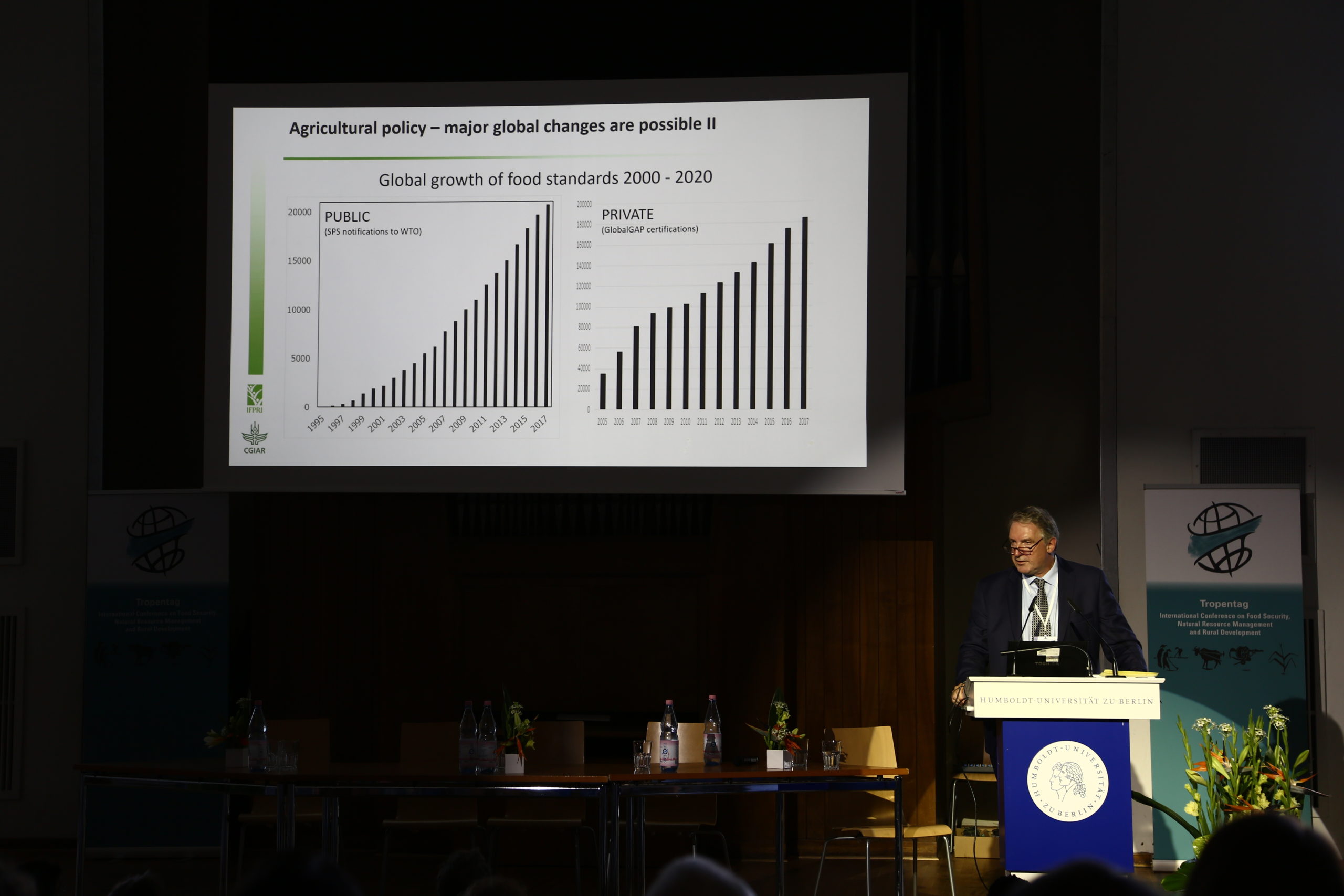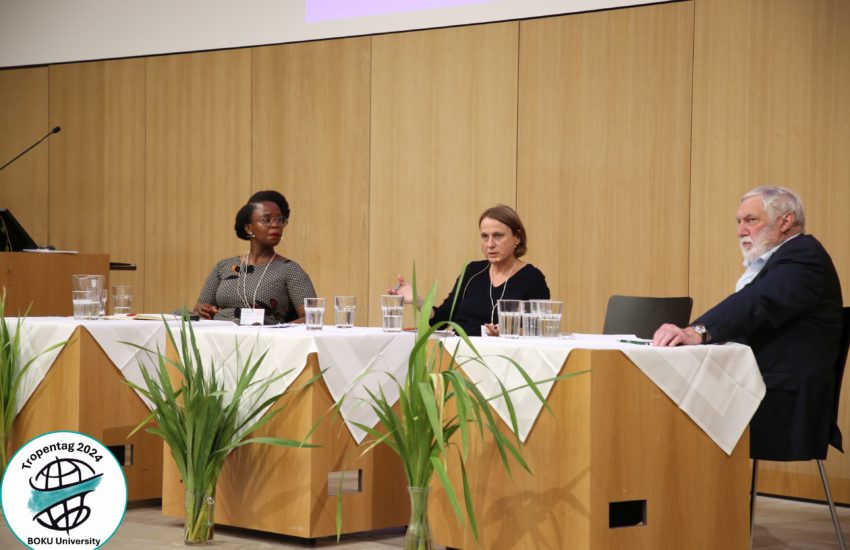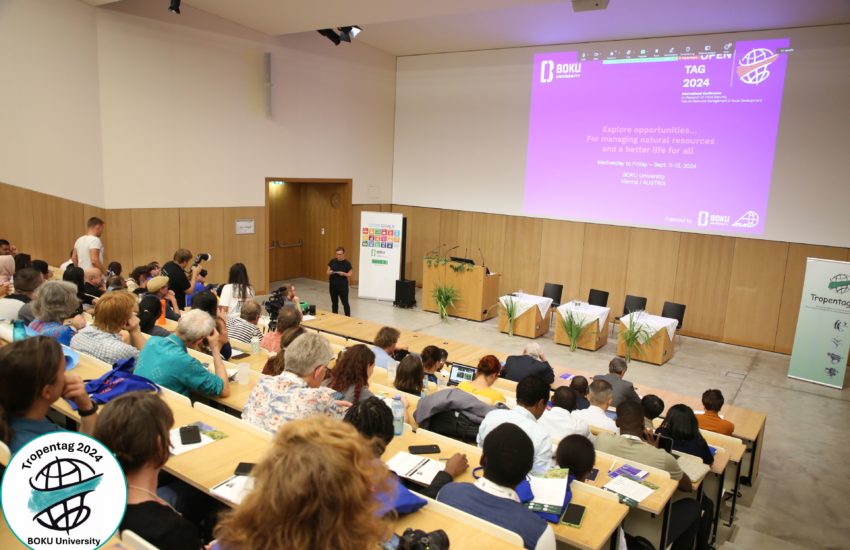Discussion on Tropentag 2023 keynote speeches
The first keynote speech at Tropentag 2023 on September 20th was hosted by Professor Johan Swinnen, Managing Director of Systems Transformation at CGIAR, and Director General of the International Food Policy Research Institute (IFPRI). His goal was to show the economic and political implications of achieving resilient food systems. He provided some insights into regional differences in food security, the coexistence of opposite forms of malnutrition, and global energy consumption. Moreover, he presented some facts and figures about ongoing conflicts and processes like migration and food crises; “Almost 200 million people across 53 countries experienced a food crisis or worse in 2021”.
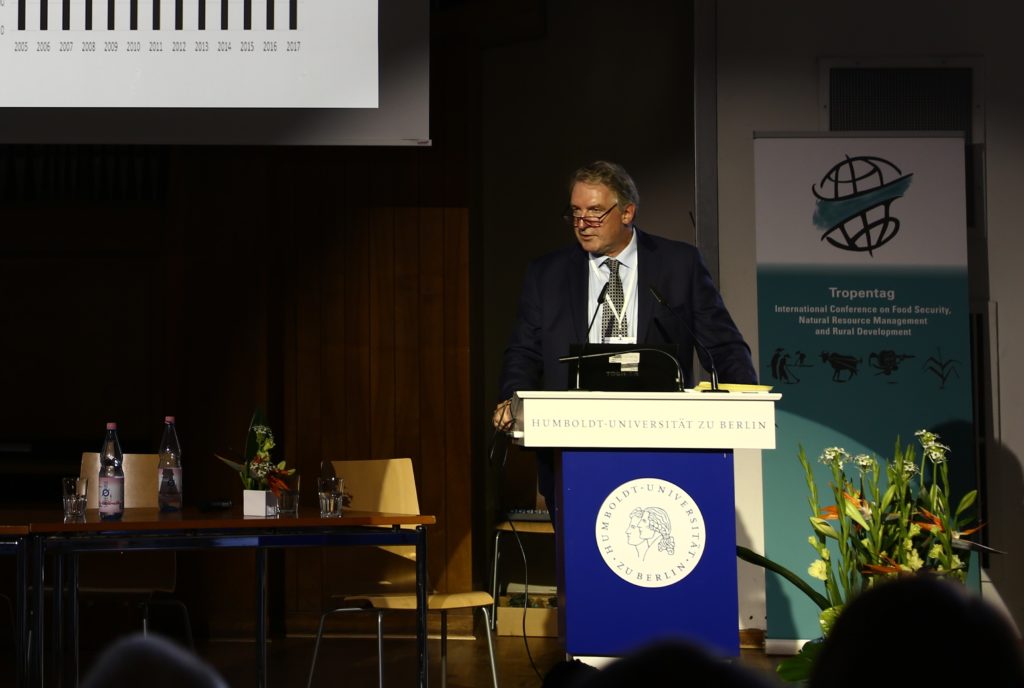
His goal was to highlight the intertwining between different transformation strategies, that reflect the deep and complex interconnection between the steps of the food systems. “From agricultural policy reform to food system transformation, we need more objectives, more policy instruments, more trade-offs and synergies, more information and the list goes on… In a nutshell, we need diversification.” Moreover, he pointed out how technology, while being a fundamental asset to reach our goals, needs to be backed up by a well-tailored policy framework for it to be fruitful. He then concluded by showing real and modern examples of the impact of economic and political crises on food systems, showcasing the cases of the Ukraine crisis and COVID-19. Interestingly, according to the data, COVID-19 seems to have had a tougher impact on urban areas rather than on rural areas, which can represent a great example of how several factors impact the food systems.
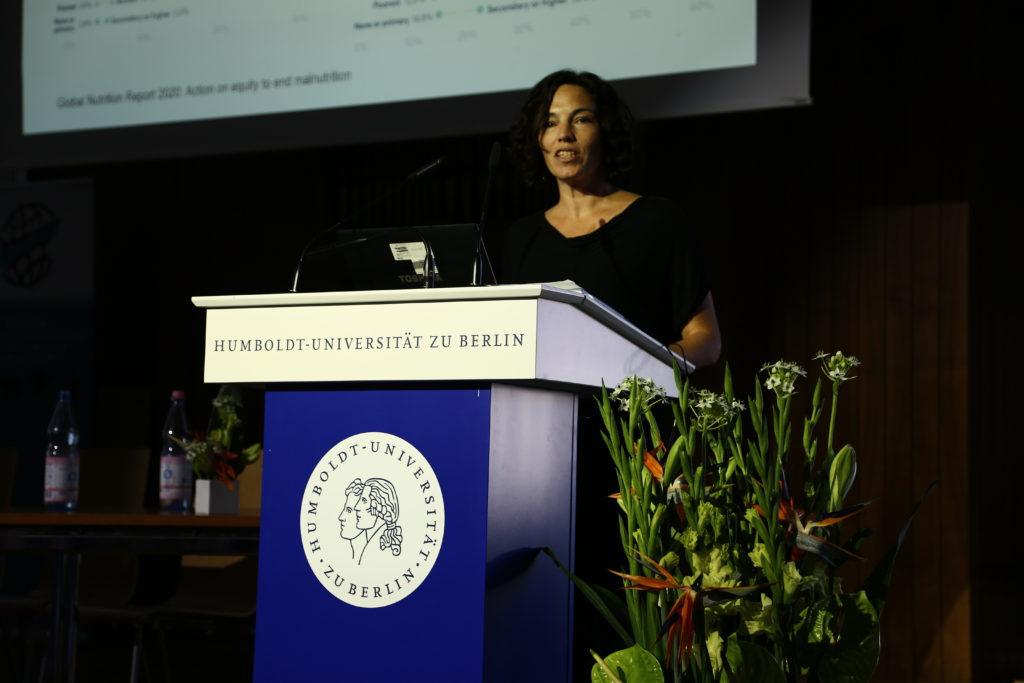
Jody Harris from the World Vegetable Centre (Thailand) was the second keynote speaker and presented her work on food systems transformation in terms of nutrition and equity. She opened by showing a slide that she said to be a staple for her presentations, showing the structure of a generic food system. This step was fundamental to display their complexity, and therefore the need for several strategies to produce change.
Her work mainly focuses on the last stages of the food systems, particularly on the different access to healthy diets and quality products of different members of society. According to her, several social groups are marginalised from accessing nutritious foods, and this appalling situation is the basis of the constantly rising malnutrition incidence all around the globe. In order to tackle the problem, it is fundamental to pinpoint who is marginalized, why, and how to ensure that they’re included in co-defining solutions to sustainably improve the food systems and reduce the incidence of malnutrition. Nonetheless, actions must be taken by governmental and intergovernmental organizations, which should cooperate with members of the private sector and civil society to enable more equitable access to resources.
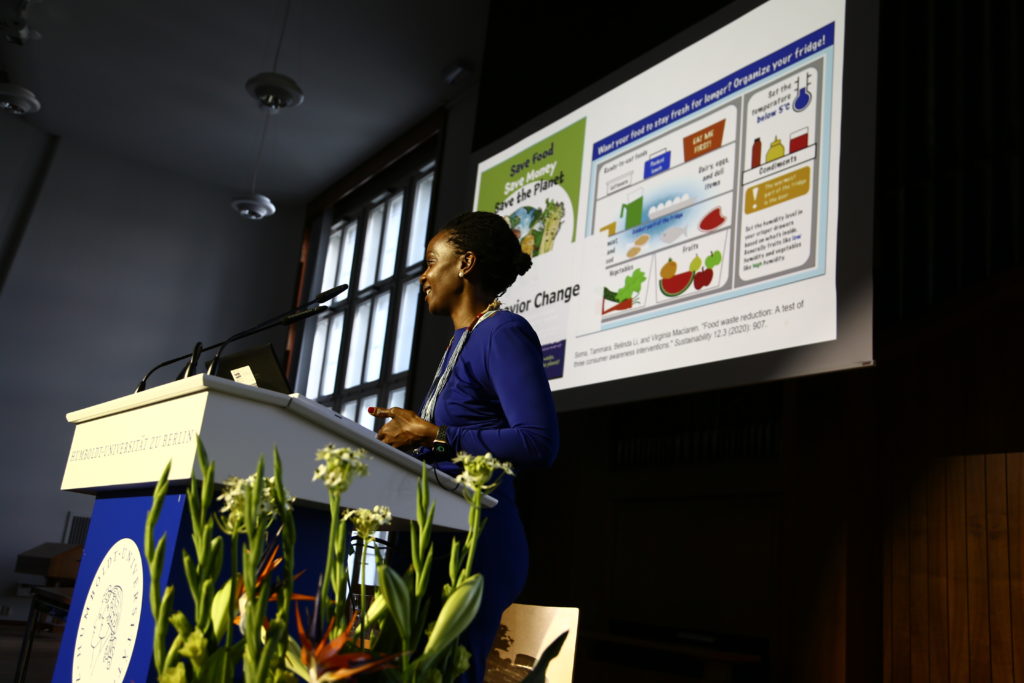
The last keynote speaker was Dr. Catherine Nakalembe, Assistant Professor at the University of Maryland, Africa Program Director under NASA Harvest, and member of the NASA SERVIR Applied Sciences Team. She was very excited to share her findings on the interplay of agriculture, land use, climate change, and food security. The starting point of her speech was that increasing agricultural productivity might not be directly connected to a decrease in world hunger. To address this situation effectively it is indeed necessary to consider the several factors that affect food availability, such as climate change and resource distribution. It is therefore fundamental to think of food systems as a complex interplay of determinants. A clear example of this is the interrelation between agriculture, the environment, and human health. A shift towards plant-based diets is necessary in terms of sustainability, but it is striking how some plant-based products can only be obtained by high-emission processes and deforestation, such as avocados and bananas production. At the same time, while meat products are proven to have negative effects on health, you can’t forget the high nutritional values of some of those products, versus the lack of specific nutrients in most plant-based products. How to find a balance?
She then finally focused on the main point of her work, it being the use of machine learning and satellites to obtain data and create models to influence decision-making. While these tools provide fundamental insights and data, there is still a wide gap between the obtained models are what can be actually applied and obtained in agriculture. It is therefore necessary to keep upgrading these systems, for them to potentially be at the basis of future improvements.
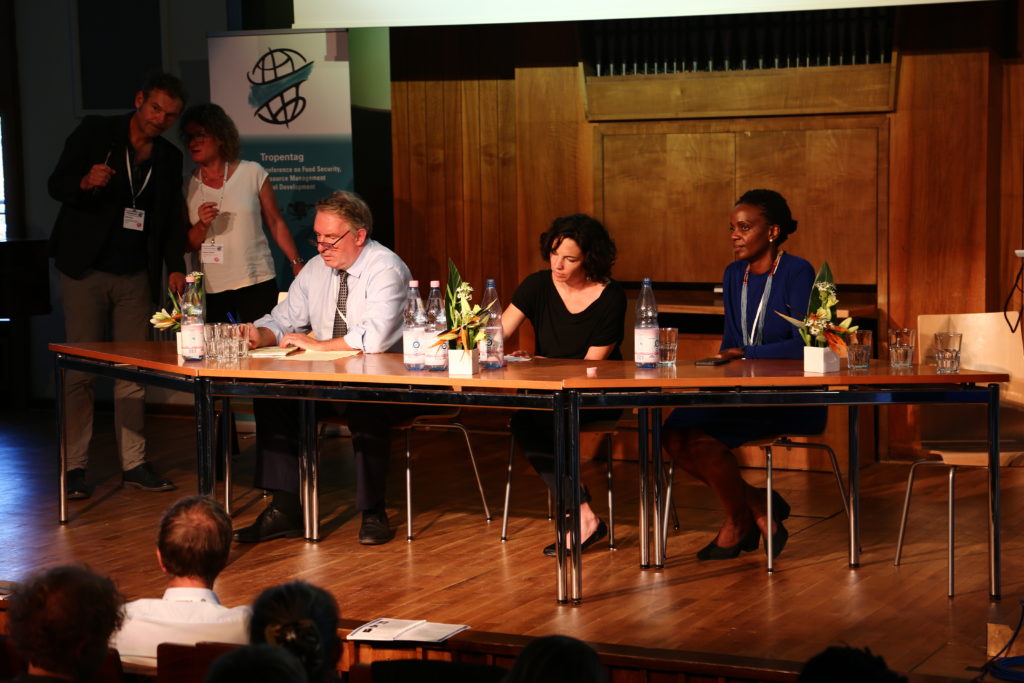
At the end of the individual keynote speeches, all three speakers sat on the stage and engaged in a discussion with the attendees, who provided some interesting insights with their questions and thoughts. For instance, concerns were raised about climate change and marginalization and the lack of concrete action from policymakers. Other inputs were connected to the need for further information about urban food systems, in a world where rural ones are more widely studied. These information gaps are important starting points for future research, which is critical for creating solutions tailored to the needs of today’s and tomorrow’s society.

